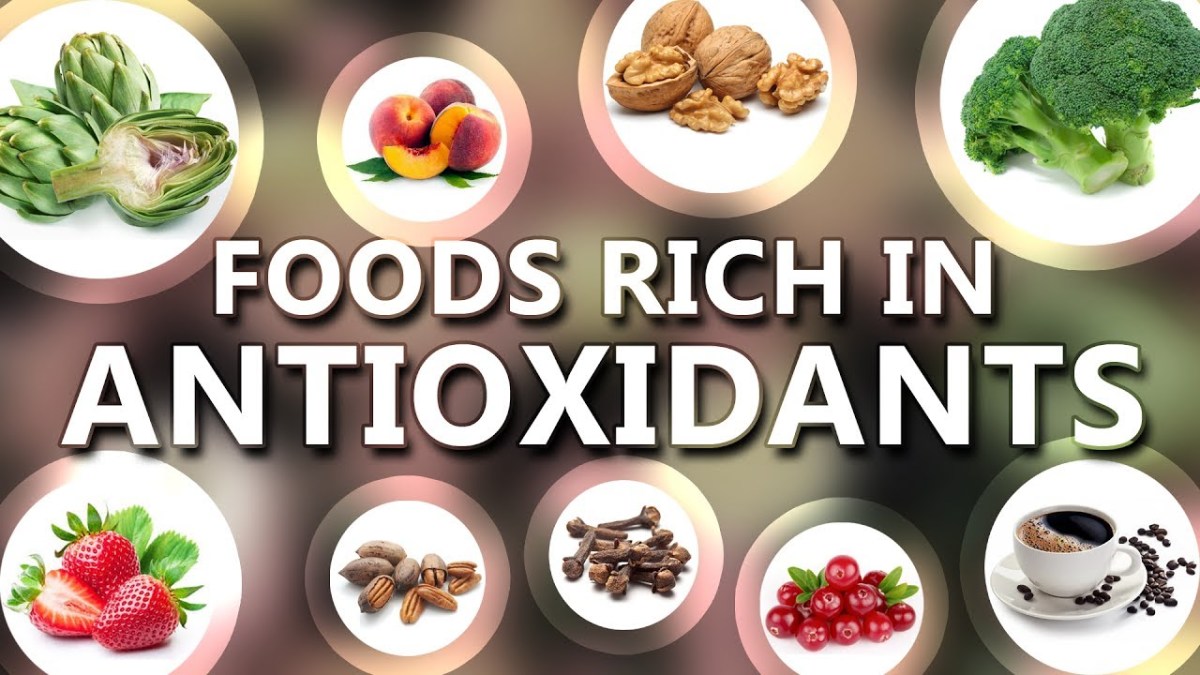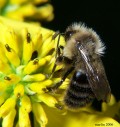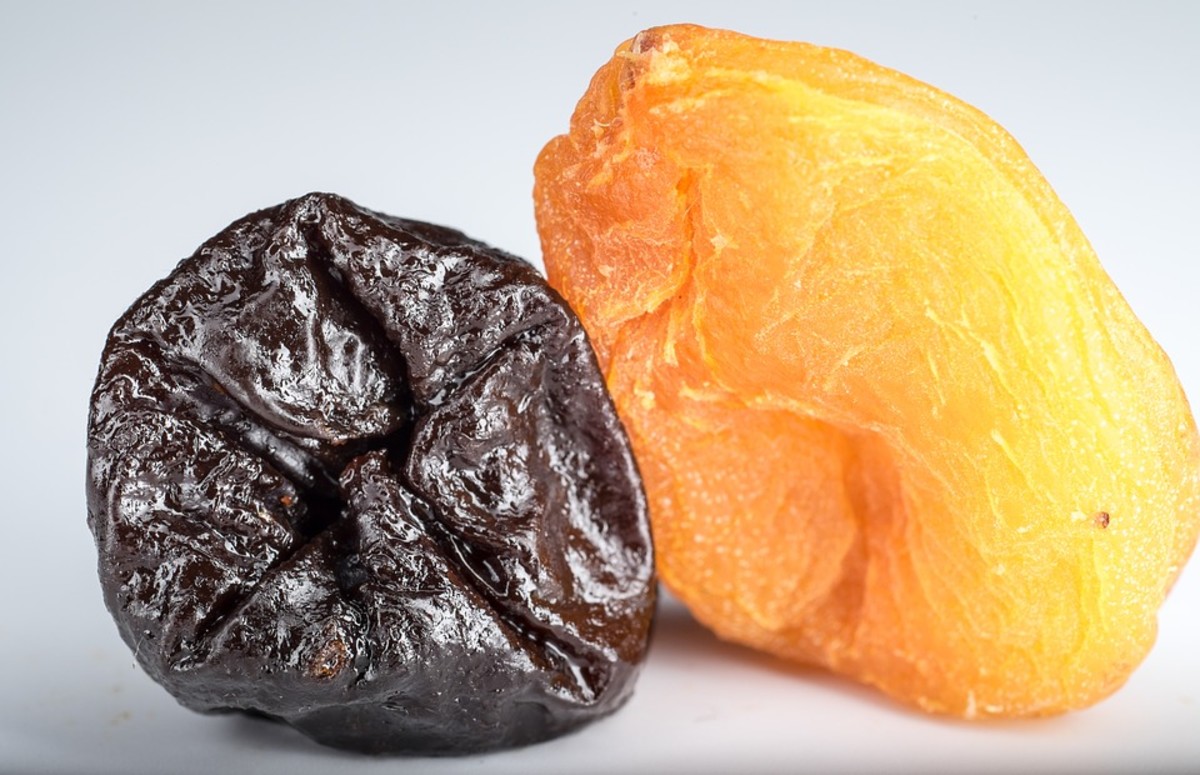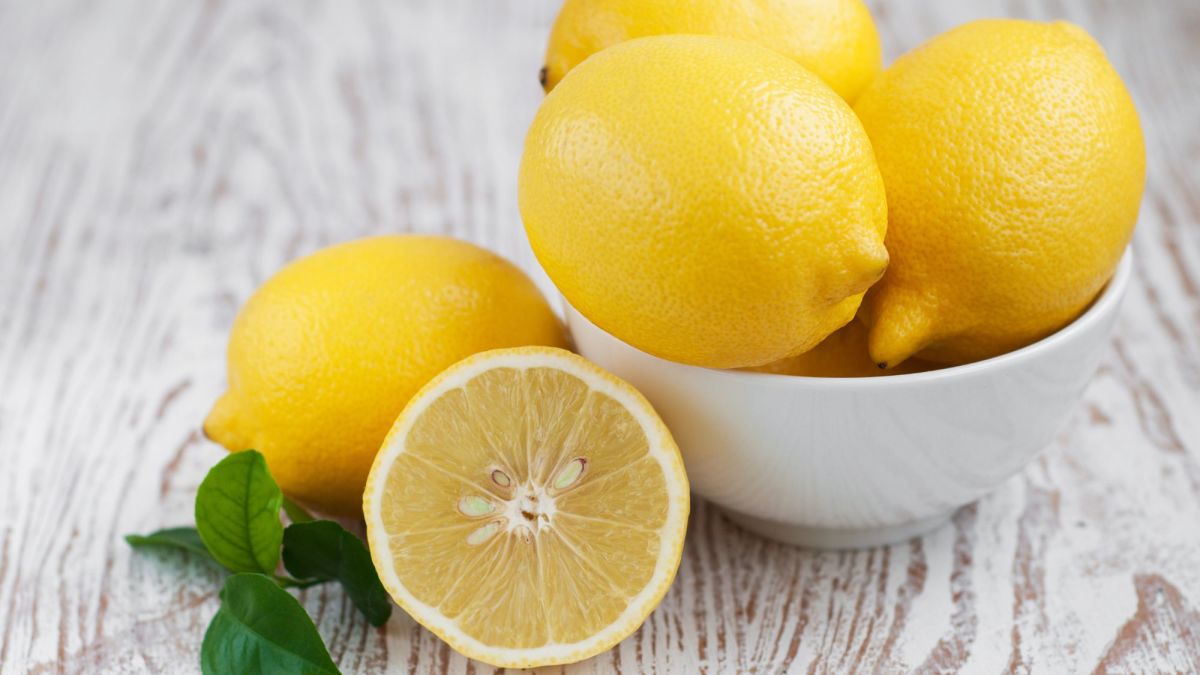What Is The Best Antioxidant?
Food Sources for the Highest Level of Antioxidants
The highest level of antioxidants in its natural state (compared with man made alternatives) come from the Moringa Olifeira leaves and that is why Moring deserves a special mention.
In fact the nutrients in this tree are way above any other alternative. That is not to say that other foods are deficient, they are not.
However the overall nutrient benefits are amazing, but that is the subject of another article.
Below is a simple chart of the Top Five antioxidant rich sources.
Top 5 natural Sources of Antioxidants
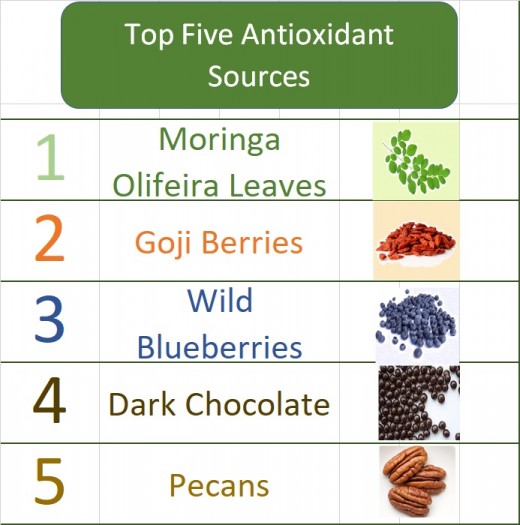
The Best Antioxidant?
Now for the heart of the matter. You will find, specially on the web, various claims for the best antioxidant.
Is there such a thing?
Is it even a good idea to look for the best antioxidant?
My answer is no. Let me explain.
There are various fruits that have high antioxidant concentrations. Some are becoming household names and are being pushed to a certain extent as a sort of "magical" solution to all your antioxidant needs.
My point is that they shouldn't.
There are no magical solutions or to put it another way, if it is to good to be true ...
Things should be seen as a whole and not in parts.
Your heart for example is not just an organ no matter how important, it is an organ within a whole organism. So is your brain and your feelings for that matter, as well as your spiritual side, your social side, your psychological side.
The same thing goes for many other things. Your spiritual welfare can't be separated from your day to day life. Your life must include both your profession and your family life: what you do in your free time is as important as how much you sleep. There may be variances in degrees, but not as a part of the whole.
Another way of looking at it is from the point of view of extremes.
The best example is called "fundamentalism". This way of taking things to an extreme, and thereby limiting even common sense, is recognized by most people as a mistake.
There are other examples, in fact too many to list them all, but in any case here are a couple:
- Addictions, of all sorts, are a practice in extremes.
- Some diets seem to forget the whole object of the exercise - to reduce weight for a healthier life.
When ever a part of the equation is left out, something goes wrong.
So back to antioxidants, if you are looking for the best antioxidant, before anything else you have to define "best for what".
Even then you are missing the point, which is a balanced diet and this means receiving the range of nutrients, including antioxidants, that best keep you healthy. A balanced diet is what you require and this includes fresh fruit, salads and vegetables.
You can also take antioxidant supplements, but the important part of this is: supplements.
That means they are in addition, no extremes, and never as a replacement.
Do You Need The Best Antioxidant?
Everybody is talking about antioxidants. You find articles all over the place - on the web, in magazines, newspapers.
- Any self respecting diet has to include antioxidants as do vitamin and health supplements.
- Food is sold highlighting its antioxidant properties.
- Millions are spent in marketing campaigns.
- Research is going on all the time and coming up with really interesting news, both positive and negative - but this is good news as knowledge in this area will be beneficial for everyone.
At the same time misleading statements can be made and in fact are probably being made.
Why?
Because it is generally recognized that antioxidants are good for you for various ailments and perhaps more importantly to stay healthy and keep your immune system going strong.
What is an antioxidant in simple terms?
To keep it simple antioxidants are molecules that help reduce oxygen damage in our cells (therefore anti oxidant).
Imagine an apple that you have cut in to. You leave it out for a while and shortly you will notice brown stains where the cut is. That is oxidization, just like rust on metals is oxidization.
Our cells can be damaged and oxidized by free radicals. These are another group of molecules that attach themselves to a cell. A free radical has an odd numbered electron and this is the one that attaches itself to other molecules in the cell and the damage begins.
This cell damage is the one that can cause cell dysfunction and from there it goes on to all sorts of ailments like heart disease, diabetes and so on.
The antioxidant has an electron that pairs up to the odd one from the free radical and so damage will stop and the cell can begin to recover.
Free radicals are all over the place and they come not only from natural sources (the sun, even the act of breathing, etc.) but from pollution and cigarette smoke.
An important point is that all these goings on are continuous, so an antioxidant that has done its job is, so to speak, neutralized. This means that your body will need more antioxidants to fight back at the free radicals that you will be absorbing.
To keep it really simple - antioxidants should be taken continuously because they are good for your health.
Where do you find them?
Antioxidants are found in fresh food. Fruit, vegetables, fish and meat. The fresher the better. You can also get them from supplements and they are available all over the place.
Some fruits are very rich in antioxidants but, and again this is important, different fruits and foods will have different antioxidant which translates into different benefits.
Six Antioxidants and Where They Are Found Naturally:
- Beta-carotene: Found in yellow, orange and dark green vegetables and fruits such as carrots, broccoli, tomatoes, peaches and apricots. Beta carotene protects these fruits from the damage caused by sunlight and it is thought that one of its benefits to us is precisely that.
- Vitamin C: Ascorbic acid that is found specially in citric fruits like oranges, grapefruit and lemons as well as other types of food. Vitamin C is a water soluble vitamin but it cannot be stored by the body and this means you have to replenish it,
- Vitamin E: Recognized a good for anti-aging and is found in seeds, whole grain, almonds, broccoli, mangoes and fish liver oil.
- Selenium: It is not rally an antioxidant (it is a mineral) but it is a component of antioxidant enzymes. In food it can be found in fish, shellfish, meat, eggs, chicken and garlic.
- Lutein: Its claim to fame is its relationship to healthy eyes. It is found in leafy vegetables such a spinach.
- Lycopene: Another potent antioxidant found in watermelons, papaya, apricots and tomatoes.

